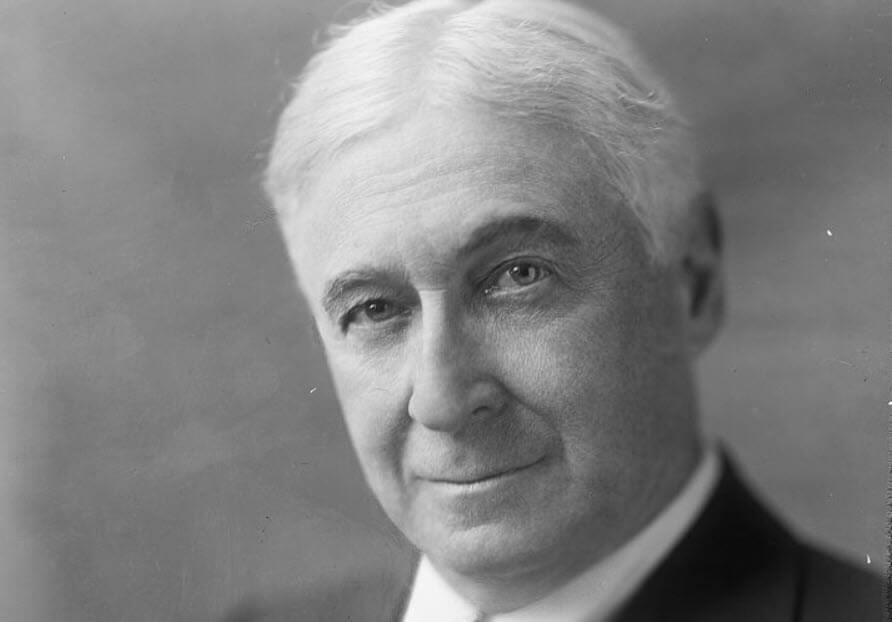Who was Bernard Mannes Baruch? Information on American financier, philanthropist, and public official Bernard Baruch biography, life story, works and career.
Explore the life and legacy of Bernard Mannes Baruch, an influential American financier, philanthropist, and public official. Learn about his early years, his successful career on Wall Street, his contributions to public service, and his philanthropic works.

Source: wikipedia.org
Bernard Baruch; (1870-1965), American financier, philanthropist, and public official. As a public official, a self-made multimillionaire, and adviser to several presidents, Baruch reflected the temper of the American scene for half a century. A sounding board and spokesman for unformulated public opinion, Baruch, the legendary “park bench statesman,” often put into words what the average American thought and felt but did not have the opportunity to say. He was, by turns, a Wall Street tycoon, a Wilsonian idealist, a reluctant New Dealer, and an Eisenhower Democrat. A man whose fame and influence were considerable, Baruch, in his determination to remain behind the scenes and avoid political risks, also forfeited many of the rewards of public service.
Entering public life in 1916 during the administration of President Wilson, Baruch mobilized American industry in World War I as chairman of the War Industries Board. His last major national service was in 1946 when President Truman named him to present to the United Nations the U.S. plan for atomic energy control.
Early Life
Baruch was born in Camden, S.C., on Aug. 19, 1870. He was the second son of Dr. Simon Baruch, a surgeon born in Posen, East Prussia, who had served with the Confederate forces under Gen. Robert E. Lee, and of Belle (Wolfe) Baruch, of Winnsboro, S.C., whose American heritage reached back to colonial days. The family moved to New York in 1881, and Baruch graduated from the City College of New York in 1889. In 1897 he married Annie Griffen, who died in 1938. They had three children.
Baruch started out in Wall Street as a runner earning $3 a week. He had amassed his first million dollars by the time he was 30, and by his mid-30’s he had $1 million for every year of his age. He was a member of the legendary “Waldorf crowd,” a group of financiers who frequented a bar in the old Waldorf-Astoria Hotel in New York City. Trained in speculation by such masters as Thomas Fortune Ryan and James R. Keene, Baruch took part in the development of vast industrial complexes.
Adviser to Wilson
A Democrat, Baruch attracted the attention of his fellow Southerner, President Wilson. In 1916, Wilson appointed Baruch (whom he nicknamed Dr. Facts) to the Advisory Commission of the Council of National Defense and made him chairman of the Commission on Raw Materials, Minerals, and Metals. Later, Wilson put him in charge of all Allied purchasing. In March 1918, the president appointed him chairman of the War Industries Board. Baruch later rejected Wilson’s offer to make him secretary of the treasury, although he accompanied the president to the Paris Peace Conference. As an economic adviser to the Peace Commission, a member of the Supreme Economic Council, and an American delegate dealing with economics and reparations clauses of the peace treaty, Baruch sat in at secret meetings of the Big Four—Orlando, Wilson, Lloyd George, and Clemenceau.
Later Government Service
Baruch had a few official responsibilities in the 1920’s. Presidents Coolidge and Hoover used him to help get support from reluctant Southern Democrats for Republican programs. In the 1930’s he turned down President Franklin D. Roosevelt’s offer of an ambassadorship. He also rejected the job of war mobilization director in 1943. However, after James F. Byrnes accepted the latter post, Baruch assisted him and also headed special fact-finding commissions for the president.
Celebrated Friendships
An intriguing mixture of sophistication and guilelessness, of Southern charm and American bluntness, Baruch enjoyed friendships that included Francis Cardinal Spell-man and showman Billy Rose and that bridged the years from “Diamond Jim” Brady to President John F. Kennedy. He was a lifelong friend of Sir Winston Churchill, whom he first met at the Paris Peace Conference in 1919. As prime minister, Churchill stayed at Baruch’s New York home during a visit to the United States in 1953.
Brauch once quipped, “I like anyone who’s at the top of his profession”; yet his gift for friendship also embraced the humble. No one valued his public image more than Baruch, but he declined a medal for his public services on the grounds that his advice was so seldom taken.
Last Years
His later career was climaxed by his appointment as U.S. delegate to the UN Atomic Energy Commission, before which he flung down the simple challenge: “We are here to choose between the quick and the dead.” Although it was vetoed by the Soviet Union, the Baruch plan for the control of atomic energy remained the official U.S. policy until the USSR developed its own atomic bomb.
Baruch was a talented amateur boxer in his youth and an avid hunter and swimmer into his 90’s. He always maintained that old age was 15 years older than he was. He died in New York City on June 20, 1965, leaving the bulk of his great fortune to his alma mater, the City College of New York, and for medical research.
Baruch was the author of The Making of the Reparation and Economic Sections of the Treaty (1920), American Industry in the War (1941), A Philosophy for Our Time (1954), Baruch: My Own Story (1957), and Baruch: The Public Years (1960).